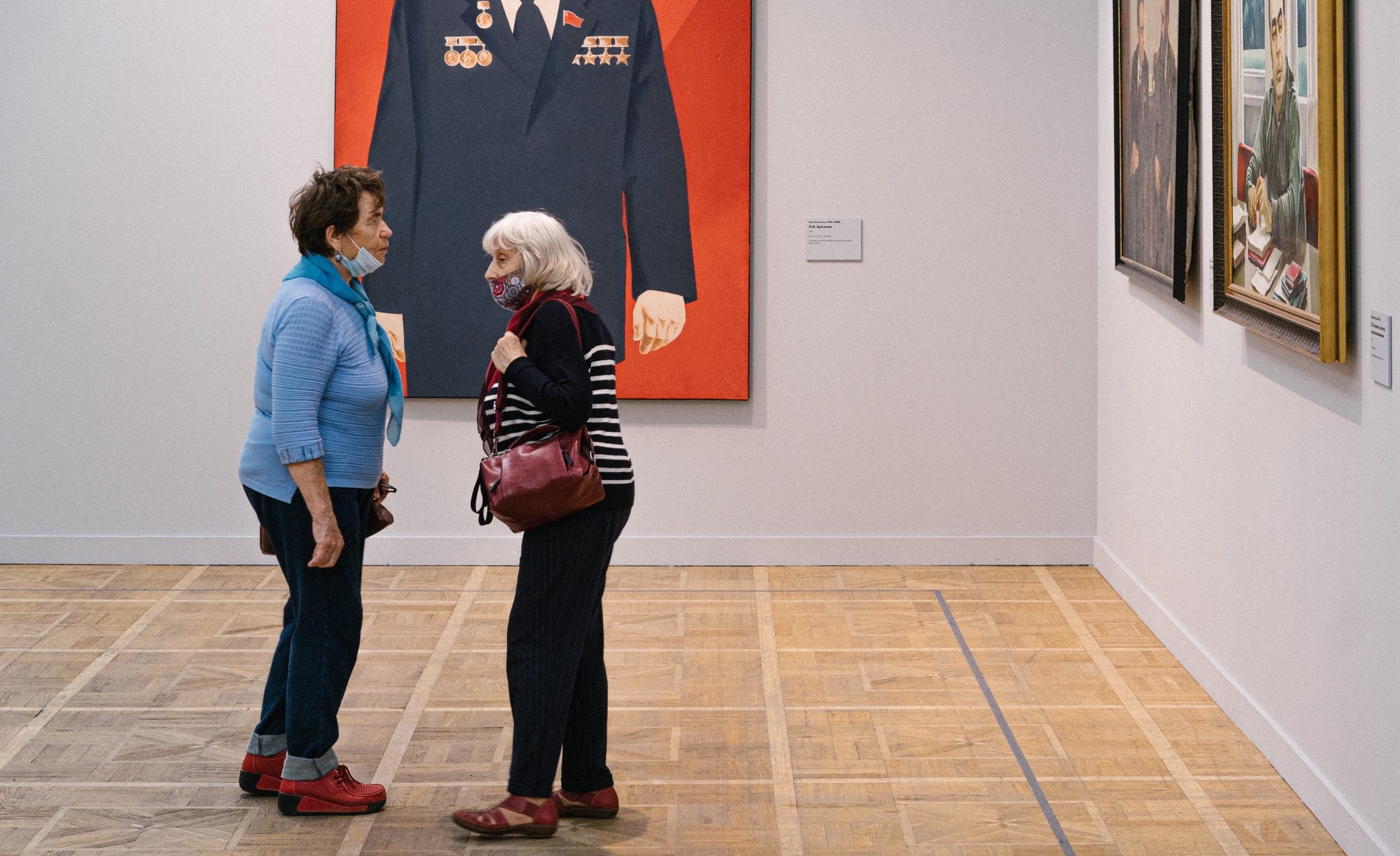
The elderly are the fastest growing segment of the U.S. population, and they have—contrary to some stereotypes—a deep desire to engage with arts and culture, according to a new report from the research group Culture Track.
Over 28,300 people aged 55 and older were surveyed online for the report, titled “Untapped Opportunity: Older Americans and the Arts.” It encourages museums and other institutions to disregard what it says are commonly held misconceptions about seniors losing interest in the arts over time, and to increase outreach to older audiences for programming.
Culture Track found that such an approach could encourage an intergenerational dialogue, and that it might be time to reconsider age-defined approaches to audience engagement that creates divisions between the generations.
The survey compared responses by older adults to those under 55, and while there were definitely differences, the interests of the two groups often aligned quite closely.
An elderly woman looks at paintings at a museum in Saint Petersburg, Russia. Photo by Octoptimist, public domain from Pexels.
In both age brackets, the number one change respondents wanted to see in art organizations is greater affordability. Both groups also hoped for an increase in support for local artists, and for a friendlier approach to all—sharing the same top-three concerns among the 18 possible responses.
For the most part, the percentage of those who had visited various cultural venues, such as museums, theaters, concerts, or festivals, in the past few years was similar for both the over and under 55 brackets.
The study also found that older adults are participating in online cultural programing at higher rates than you might have expected. Even among those who are 85 and older, 52 percent said they had participated in digital cultural activities during the first year of the pandemic.
Respondents over 55 were clear about the benefits of creative engagement, particularly when it came to learning something new. The older a respondent was, the more likely it was they had learned something at an online program: 61 percent of those over 85 said they did, as opposed to just 45 percent of those under 55.
Learning was actually the biggest benefit for those over 55, followed by relaxation and fun—whereas younger respondents ranked fun first, followed by learning and relaxation.
The main difference between older and younger adults who answered the survey was that those over 55 were more likely to value arts and culture events as a means of social connection—and that that percentage increased with age. Only 33 percent of those under 55 said they wanted more social connection, compared to 62 percent of those over 85.
But both older and younger respondents were in agreement about what they most wanted to see increase in their lives. Fun was the top choice among 14 options for both groups, selected by 53 percent of older adults and 55 percent of those under 55.